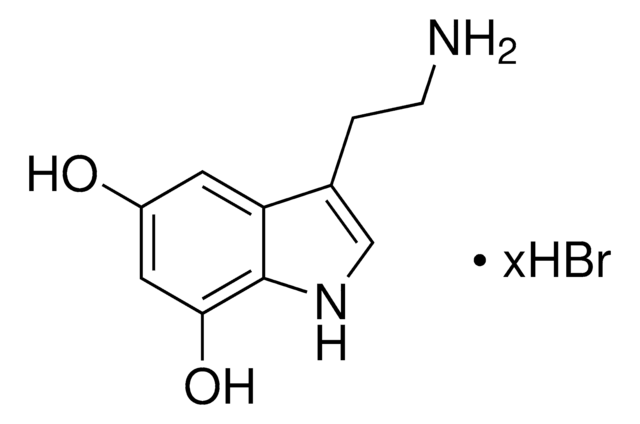D3900
Desipramine hydrochloride
≥98% (TLC), powder, tricyclic antidepressant
About This Item
Recommended Products
product name
Desipramine hydrochloride, ≥98% (TLC), powder
Assay
≥98% (TLC)
form
powder
color
white to off-white
solubility
H2O: 50 mg/mL
originator
Sanofi Aventis
storage temp.
2-8°C
SMILES string
Cl[H].CNCCCN1c2ccccc2CCc3ccccc13
InChI
1S/C18H22N2.ClH/c1-19-13-6-14-20-17-9-4-2-7-15(17)11-12-16-8-3-5-10-18(16)20;/h2-5,7-10,19H,6,11-14H2,1H3;1H
InChI key
XAEWZDYWZHIUCT-UHFFFAOYSA-N
Gene Information
human ... SLC6A2(6530)
Looking for similar products? Visit Product Comparison Guide
General description
Application
- to prevent norepinephrine neuron degeneration and to maximize uptake into DA neurons
- to protect unselective damage to the noradrenergic system
- as a norepinephrine re-uptake inhibitor to treat rats for lesioning
Biochem/physiol Actions
Features and Benefits
Caution
Signal Word
Danger
Hazard Statements
Precautionary Statements
Hazard Classifications
Acute Tox. 4 Oral - Eye Irrit. 2 - Resp. Sens. 1 - Skin Irrit. 2 - Skin Sens. 1 - STOT SE 3
Target Organs
Respiratory system
Storage Class Code
11 - Combustible Solids
WGK
WGK 3
Flash Point(F)
Not applicable
Flash Point(C)
Not applicable
Personal Protective Equipment
Certificates of Analysis (COA)
Search for Certificates of Analysis (COA) by entering the products Lot/Batch Number. Lot and Batch Numbers can be found on a product’s label following the words ‘Lot’ or ‘Batch’.
Already Own This Product?
Find documentation for the products that you have recently purchased in the Document Library.
Customers Also Viewed
Our team of scientists has experience in all areas of research including Life Science, Material Science, Chemical Synthesis, Chromatography, Analytical and many others.
Contact Technical Service













